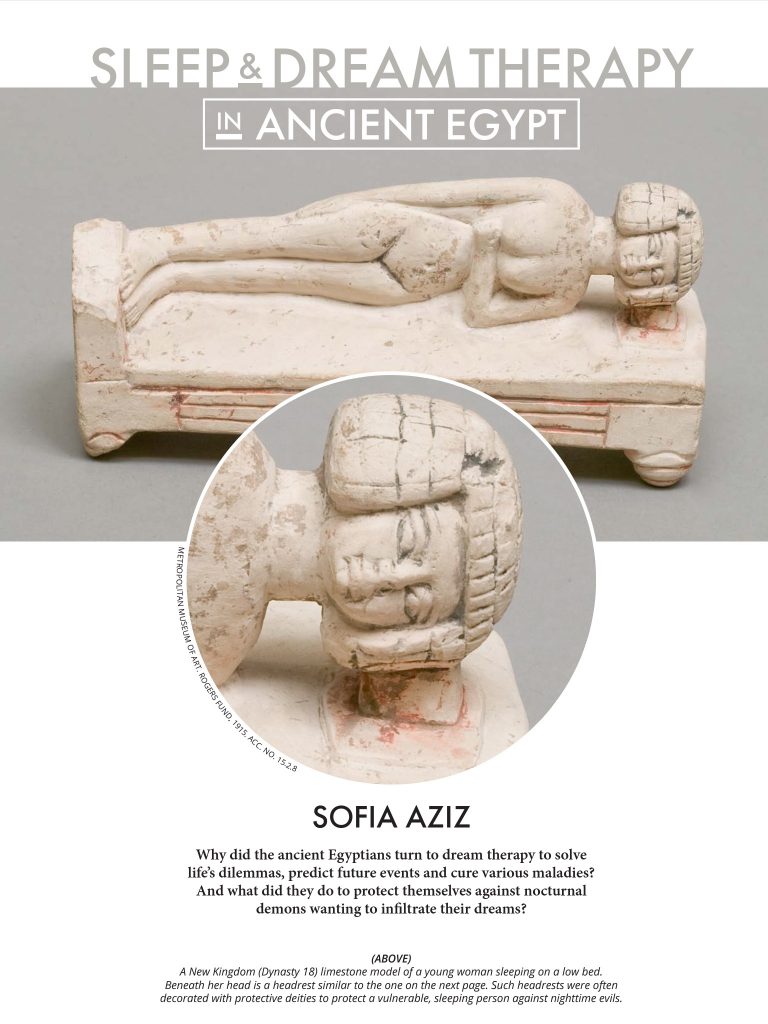Sleep is a universal phenomenon that unites all animals and has always been a core aspect of our existence, yet the function of sleep remains a scientific conundrum that is still being unravelled. For the ancient Egyptians, oneiromancy, i.e. the interpretation of dreams provided hidden messages about a person’s future, and dream therapy was used to assist in healing numerous afflictions. At temples such as Dendera, patients experienced therapeutic dreaming that magically facilitated an encounter with the gods. The hoped-for outcome was divine intervention to relieve the patient from a medical affliction. But what exactly is sleep and why have dreams always been an area of fascination for humans?
Medically speaking, sleep is both a perplexing and bizarre phenomena which causes bouts of unconsciousness in which paralysis occurs, muscles twitch involuntarily and the eyes dart back and forth. Irregular breathing and heart rate is accompanied with hallucinations, hearing voices and seeing things that aren’t there. It all sounds rather alarming. These hallucinations can be terrifying at times, and although we understand them as nightmares, it is likely they were responsible for early myths about demonic beings and life after death.
Dreams connect us with the deepest and darkest part of ourselves and help us engage with our unconscious selves. Sigmund Freud believed dreams were messages from our unconscious mind, while Karl Jung proposed that dreams tap into a vast collective unconsciousness of shared human memory. Hippocrates, the father of medicine, postulated that dreams could reveal cures for illnesses, and the ancient Egyptians believed dreams emanated from external forces such as the gods, demons or the dead.
Modern day neuroscience studies are demonstrating that what we observe is not merely a passive reception of information but rather a reality created by our brain; dreams are more than the random firing of synapses and are vital for our health and wellbeing and play an important role in cognitive development and consolidating memory.
My article on sleep and dream therapy is available now:
https://www.nilemagazine.com.au
https://www.academia.edu/41809343/Sleep_and_Dream_Therapy_in_Ancient_Egypt

